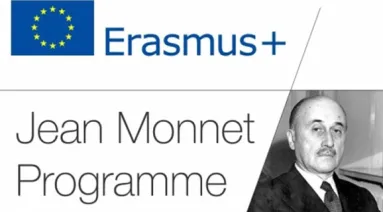SUSTAINABILITY AND REGULATION IN THE EUROPEAN UNION
Jean Monnet Module “SustainableRegEU”
The project (ID:101127397) aims at establishing a main interdisciplinary educational course – and to activate a set of collateral educational, dissemination, and communication activities – addressing the topic of “Sustainability and Regulation in the European Union: a multidisciplinary perspective”. The course will investigate the existing and forthcoming EU regulatory initiatives in the field of sustainability from different perspectives (e.g. sustainable finance, corporate social responsibility, energetic transition and open innovation, etc.), developing a fully-fledged educational program focused on the common rationale of sustainability in the European dimension.
Project
In recent years, sustainability has arisen as a substantive priority in defining the overall structure of society and the market. Against the traditional principles of extractive capitalism, we are witnessing the affirmation of social and productive phenomena based on alternative paradigms, that aim at promoting democratic, inclusive, and substantive justice in the creation and distribution of value, as well as ensuring intergenerational solidarity and the protection of depletable resources. The very concept of value creation is increasingly disentangled from the extractive archetype, making way for a new notion of profit as an integrated concept.
Accordingly, European institutions acknowledged the stringent need for the EU “to transform its economy and society to put it on a more sustainable path” (The European Green Deal, COM 640/2019), addressing sustainability-related challenges as both an urgent need and an opportunity to introduce transformative policies to shape the future society.
Sustainability is, indeed, a complex concept that encompasses extremely heterogeneous aspects (e.g. the Environmental, Social, and Governance dimensions) and fields across different markets (e.g. the energetic, financial, and digital marketplaces); this peculiarity – together with the wide-ranging spill-over effects and negative externalities that unsustainable processes create for the society – call for an approach, which is able to conjugate specific expertise and wide-ranging understanding of the phenomenon. At the same
time, given the intrinsic long-term characteristic of sustainability challenges, societal education is pivotal.
Yet, European universities are still in the process of developing higher education programs based on sustainability and its regulation. Furthermore, even when these initiatives are present, educational programs often embrace a sectorial perspective, in which the different aspects that are relevant to master the different implications of the topic are treated as separate clusters.
Henceforth, the project aims at establishing a main interdisciplinary educational course – and to activate a set of collateral educational, dissemination, and communication activities – addressing the topic of “Sustainability & Regulation in the European Union”.
The course will focus on analysing the existing and forthcoming EU regulatory initiatives in the field of sustainability from different perspectives (e.g. sustainable finance, corporate social responsibility, energetic transition and open innovation, etc.) In addition, the investigation of the relevant regulatory framework will be conjugated both by theoretical investigations discussing the conceptual and economic underpinnings of sustainable models (e.g. non-extractive models, doughnut economy, etc.), by lectures given by experts coming from non-legal domains(urban engineering, chemistry) and by interactions with business operators and civil society representatives, in order to provide a multi-faceted perspective on the topic.
Partners
The Department of Law of UniBa manages
and oversee the project, ensuring its organizational and scientific quality.
The course is focused on the analysis of EU
regulation on sustainability following an integrated approach
encompassing different legal domains and expertise from different markets,
allowing the students to understand the importance of relevant changes in
sustainability law both from a theoretical and dogmatical perspective, and
in the business practice, as well as their societal impact more in
general.
The overall project also promotes cooperation
between UniBa and other universities and between the university and the
industry, while enhancing the quality and impact of higher education in the
field of sustainability.




